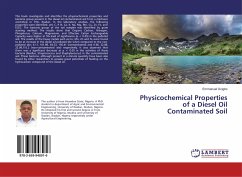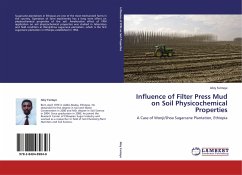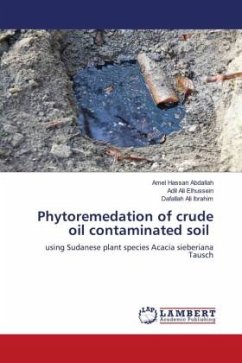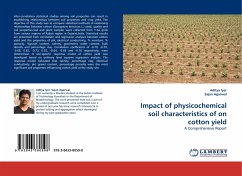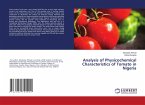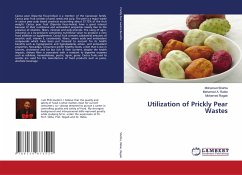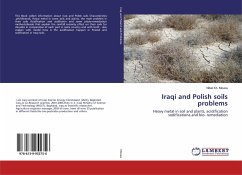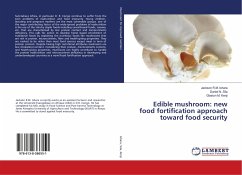This book investigates and identifies the physicochemical properties and bacteria group present in the diesel oil contaminated soil from a mechanic workshop in IITA, Ibadan. In the laboratory analysis, the following properties were identified: pH, C, P, N, Ca, K, Na, Mg, Mn, Cu, Zn, Fe, and ECEC. The bacteria group of the soil samples was identified by gram staining method. The results show that Organic Carbon, Nitrogen, Phosphorus, Calcium, Magnesium, and Effective Cation Exchangeable Capacity were higher at 5% level of significance (p 0.05) in the polluted soil. The results of the heavy metals such as Cu, Mn, Zn and Fe were found to be at increase in the diesel oil polluted site when compared to the non-polluted site; 4.11, 101.89, 64.23, 156.41 (contaminated) and 0.66, 32.88, 22.09,115.2 (non-contaminated site) respectively. It was observed that there was a significant decrease at p 0.05 in the activities of these bacteria (Bacillus, Streptococcus and Staphylococcus) in the contaminated soil. These bacteria, although present in a minute quantity have been also found by other researchers to possess great potentials of feeding on the hydrocarbon compound of the diesel oil.
Bitte wählen Sie Ihr Anliegen aus.
Rechnungen
Retourenschein anfordern
Bestellstatus
Storno

